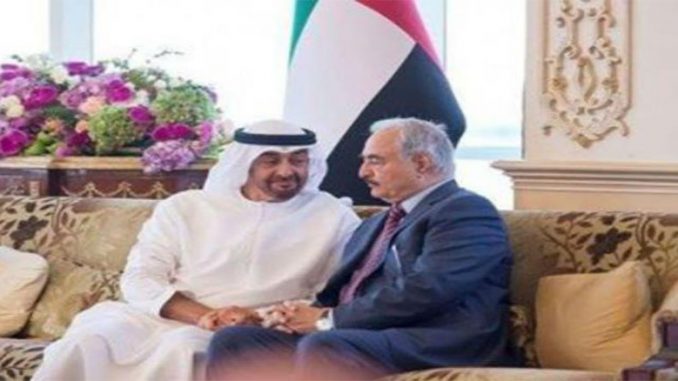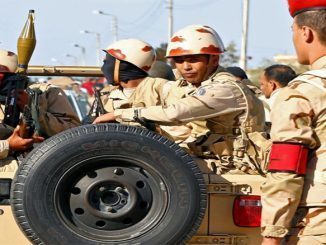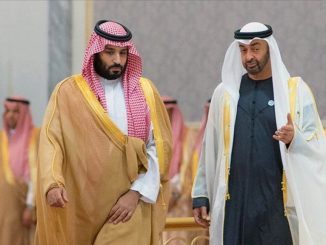
The UN has accused the UAE of supplying military aircraft to Khalifa Haftar in violation of a UN arms embargo
Days after he announced taking Libya’s second city from militants, Libyan strongman Khalifa Haftar met with UAE leaders for talks on military cooperation, even as fighting persisted in his absence.
Haftar, who has visited the United Arab Emirates regularly in recent months, held talks with Abu Dhabi Crown Prince Sheikh Mohammed bin Zayed al-Nahyan Saturday on “joint cooperation between the two countries … in combating extremism and terrorist organisations,” state news agency WAM said on Sunday.
The United Nations in June released a report accusing the UAE of supplying helicopters and other military aircraft to Haftar in violation of a UN arms embargo.
Libya has been under an arms embargo since the 2011 uprising that drove then-leader Muammar Gaddafi from power, but the UN report detailed a “general increase in direct foreign support to armed factions in Libya” from the UAE, which had allowed Haftar to gain ground in eastern Libya.
Haftar, the head of the self-proclaimed Libyan National Army, last Wednesday announced the “total liberation” of Benghazi, three years after it was overrun by militants.
Still, Colonel Miloud Zwei, spokesman for Haftar’s LNA, said on Sunday that fighting continued in the district of Soug al-Jarid, located between the central neighbourhoods of Soug al-Hout and al-Sabri, the militants’ last strongholds.
Zwei said 20 LNA soldiers had been killed by “terrorists” who had been hiding in houses since Wednesday. Three others were killed on Sunday in mine blasts as they carried out search operations, he added.
Zwei said LNA forces had killed several militants and arrested 17 since Wednesday.
Six years after the uprising that toppled and killed Gaddafi, chaos continues to engulf Libya as militants fight for power and access to the country’s vast oil reserves.
The unrest has provided fertile ground for extremist groups, some with ties to al-Qaeda and the Islamic State group.
The UAE in May hosted a meeting between Haftar and rival Fayez al-Sarraj, head of the UN-backed Government of National Accord (GNA), in a bid to mediate in the political conflict.
Haftar does not recognise the authority of the Tripoli-based GNA, instead backing an alternate government based in the country’s east.



